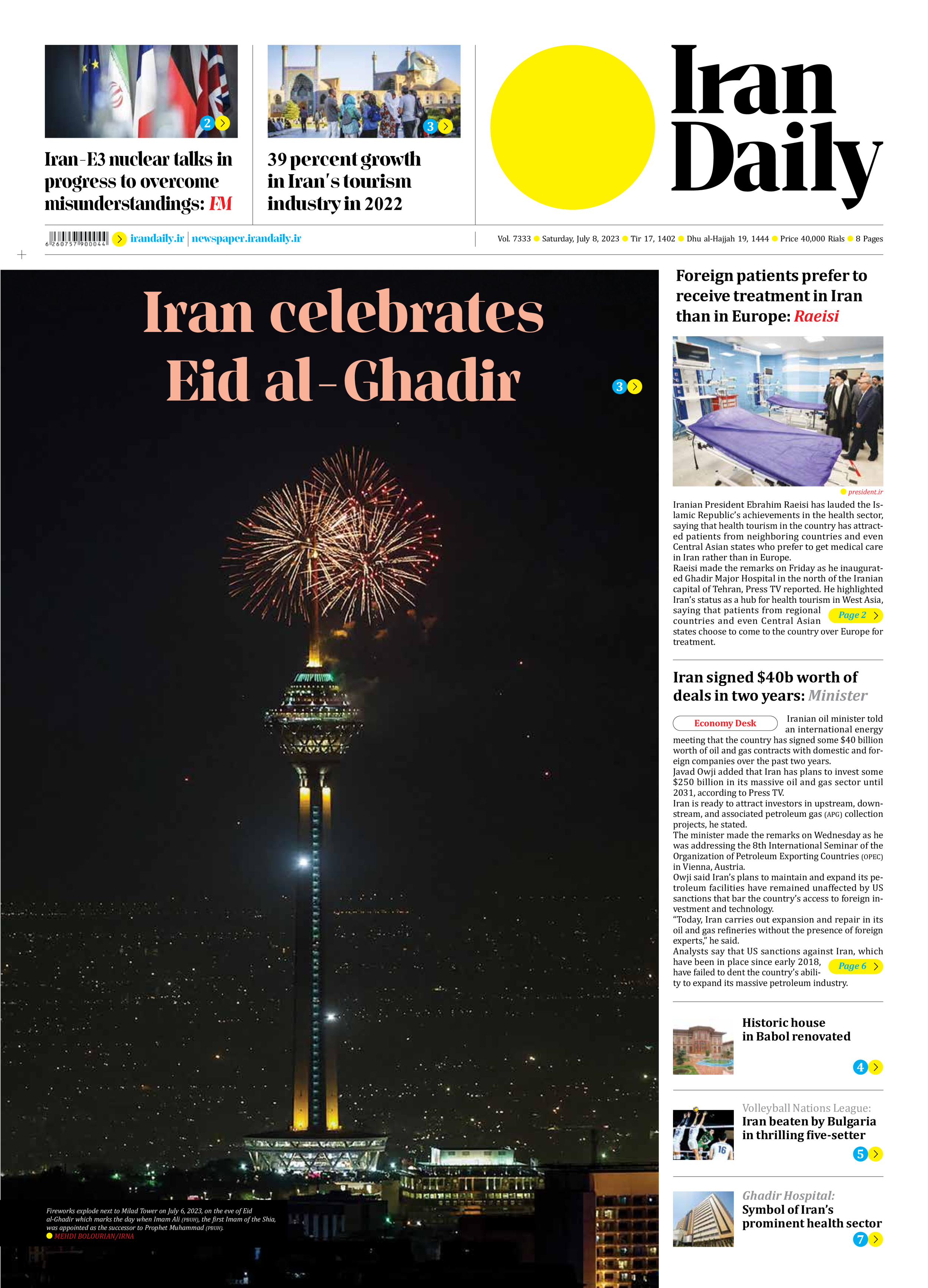
Iran signed $40b worth of deals in two years: Minister
Iranian oil minister told an international energy meeting that the country has signed some $40 billion worth of oil and gas contracts with domestic and foreign companies over the past two years.
Javad Owji added that Iran has plans to invest some $250 billion in its massive oil and gas sector until 2031, according to Press TV.
Iran is ready to attract investors in upstream, downstream, and associated petroleum gas (APG) collection projects, he stated.
The minister made the remarks on Wednesday as he was addressing the 8th International Seminar of the Organization of Petroleum Exporting Countries (OPEC) in Vienna, Austria.
Owji said Iran’s plans to maintain and expand its petroleum facilities have remained unaffected by US sanctions that bar the country’s access to foreign investment and technology.
“Today, Iran carries out expansion and repair in its oil and gas refineries without the presence of foreign experts,” he said.
Analysts say that US sanctions against Iran, which have been in place since early 2018, have failed to dent the country’s ability to expand its massive petroleum industry.
They believe a major expansion in the Iranian natural gas sector in recent years has compensated for the relatively low levels of production and exports of crude oil in the country.
Iran is currently producing some 3.8 million barrels per day (bpd) of crude oil and more than one billion cubic meters per day of natural gas. The country has some 10 active oil refineries and 21 natural gas refineries while it also counts on massive hard currency revenues from its petrochemicals sector.
Old and new oil deals under review
Iranian Oil Minister Javad Owji met with several of his counterparts in the region on the sidelines of the Vienna OPEC conference on Wednesday and Thursday and reviewed oil cooperation.
The most important bilateral meeting of Owji was with his Saudi counterpart Prince Abdulaziz bin Salman, with the aim of discussing the future outlook for crude oil prices and the possibility of joint investments in the oil and gas industry, IRNA reported.
The two ministers held intense discussions on Wednesday, the first day of the conference. Owji and Bin Salman also discussed the development of shared fields.
The two major oil-producing countries agreed in March to restore their relations after seven years.
On Wednesday, the Emirati Minister of Energy Suhail Al Mazrouei also stressed the need for Iran and the UAE to improve their oil and gas cooperation on various issues such as crude oil, natural gas, petroleum products, and petrochemicals.
Javad Owji and his Iraqi counterpart Hayan Abdulghani reviewed oil cooperation, as well as oil and gas exchanges. They also explored joint investments and the development of shared oil fields and held talks on the exports of Iran’s techno-engineering services to Iraq.
In another Thursday meeting in Vienna, Iran’s Oil Minister Javad Owji and Egyptian Minister of Petroleum and Mineral Resources Tarek El Molla exchanged views on the energy market and trade, as well as bilateral cooperation in energy, oil, and petrochemical sectors.
Export of technical and engineering services, particularly gas technology and the know-how to manufacture bi-fuel vehicles, was the other subject that Owji and his Egyptian counterpart discussed, Shana news agency reported.
The meeting was held as Iran and Egypt are rebuilding their diplomatic relations after decades-long severance, and the political rapprochement is paving the way for Tehran-Cairo cooperation in the oil and gas sectors.
The terms and conditions of Iran’s new oil contracts are aimed at attracting investors, said the minister, adding that based on new oil contracts, investors use revenues earned by selling products of hydrocarbon fields. “Some countries, including Russia, and even oil companies of neighboring states have welcomed such contracts.”
New oil contracts have been drawn up in a way to give a return on investment (ROI) in the shortest amount of time possible, he said.







